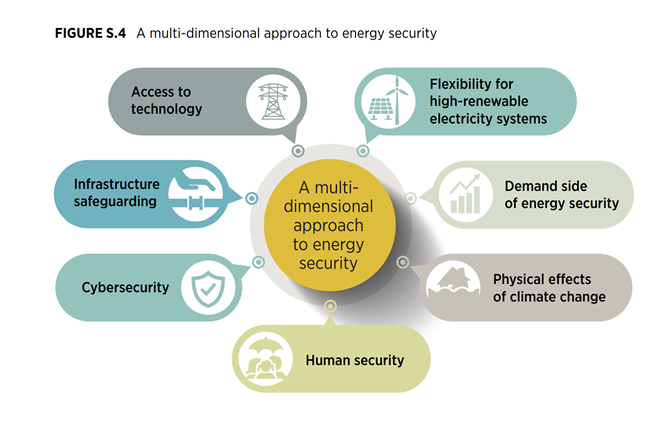The world is becoming more volatile and unpredictable. The energy sector is no exception.
Tariffs, sanctions, conflicts and supply chain disruptions have affected global trade in energy, sparking increased protectionism in some nations, and causing commodity prices and energy inequality to rise. However, in every challenge there are risks but there are opportunities too. Global geopolitical and geoeconomic shifts have pushed us to reshape our understanding of energy security. Traditionally, energy security has been measured in fossil fuel supply. We at IRENA believe that this needs to be revised.
Energy security must also be understood through renewable capacity. Not only to supply diversification but also to enhance economic growth and the imperative of securing critical infrastructure against potential economic coercion.
Renewable energy, led by solar PV, wind power, and other technologies, are already advancing at an unprecedented pace, becoming central to the global energy system. The world added a record of 585 gigawatts of new renewable power capacity in 2024, the largest growth ever. And IRENA's 1.5°C scenario shows that by 2050, over 90% of global electricity must come from renewable sources, with clear divestments from fossil fuels.
As we move forward, we must recognise that geopolitics plays a powerful role.
We are navigating not just technological shifts but managing political and economic forces that will determine whether this transition is equitable, secure, and successful. Challenges include navigating the tension between national industrial strategies and established global trade frameworks, addressing the risks of technological decoupling, ensuring fair access to technologies for all nations, and managing the potential for clean energy dependencies to become new geopolitical leverage points.
Financing and collaboration will play a pivotal role. Challenges are compounded by uneven global deployment of installed renewables, insufficient financial flows, and looming supply challenges for energy transition technologies.
IRENA's "Geopolitics of the energy transition: Energy security" report advises that policy makers should not merely transpose thinking from the fossil fuel era to a renewables-based system. IRENA has identified multiple issues that should be systematically considered to guide national decision making on resource endowments and comparative advantages. This is particularly crucial as governments make significant investments in infrastructure for systems that are increasingly electrified, digitalised and decentralised.

At the heart of this transition also lies the geopolitics of critical materials. The mining of essential minerals such as lithium, cobalt, nickel, and rare earths is highly concentrated in a handful of countries. This concentration exposes the global energy transition to significant vulnerabilities that can threaten energy security.
Significant geopolitical risks arise from the high concentration of processing and refining capabilities, alongside ensuring equitable access and resilient logistics for these essential inputs. These disruptions underscore the geopolitical risks that hinder progress on the clean energy transition. The competition for critical materials could escalate into trade wars, export restrictions, and market manipulation, making the transition not only slower but more costly as shown by IRENA's "Geopolitics of the Energy Transition: Critical Materials" report.









